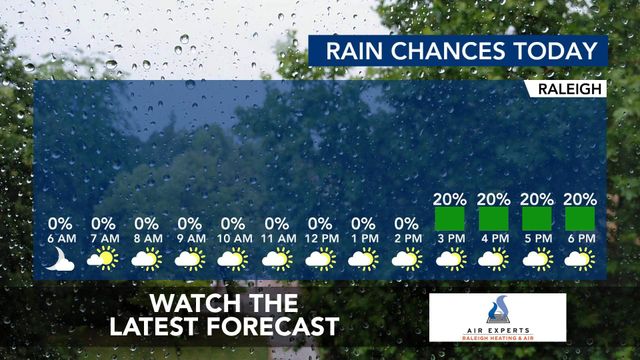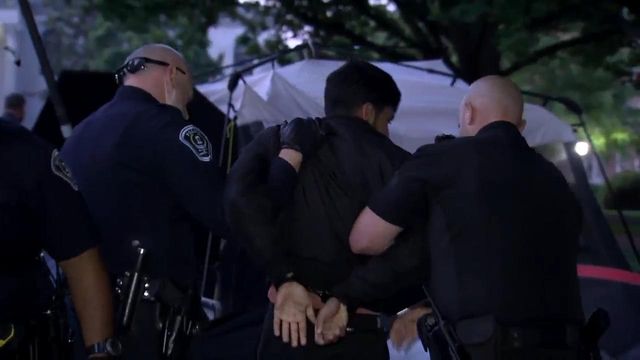Editorial: Bill requiring in-person learning relies on luck not reality. Needs more work

CBC Editorial: Monday, Feb. 22, 2021; Editorial #8640
The following is the opinion of Capitol Broadcasting Company.
The leaders of the North Carolina General Assembly treat legislation like a wish to the genie in the lamp.
The demands in legislation, like requiring in-person classroom instruction for most public schools will instantly happen because, poof, the bill becomes law. For this legislation to work, several assumptions that are far out of the control of mere mortals – even esteemed and powerful state legislators – must align.
The reality, as legislators have been repeatedly shown over the years but refused to acknowledge, is that commands for action require understanding, planning, communication, resources and consensus. For some reason, legislators who often crow that local governance and decision-making is their strong bias, feel this one-size-fits-all solution is best. This legislation prevents communities from making their own assessment of local needs and conditions to make these sensitive decisions.
When it comes to this latest mandate:
- Why are public charter schools excluded?
- How are schools going to provide the additional space needed to accommodate a safe in-classroom environment?
- How are schools going to pay for substitute teachers to replace those who cannot be in the classroom because of COVID-19 exposure or other related matters?
- What needs to be done to meet necessary space requirements for in-school meals? Already, we’re learning that some schools are considering rules that could have kids sitting on the floor to eat meals.
- Can all of this be assured when schools would be required to implement the mandate – around March 15?
- Why isn’t there a requirement, and necessary funding, to make sure there is a nurse or other health professional, on-site at each open school?
Consensus needs to be more than the votes of three Democrats in the state Senate or eight in the House. There’s significant division among boards of education -- let alone disagreements within individual boards – over best ways to handle in-classroom instruction. Teachers, education administrators and parents are far from uniform in their positions on in-classroom mandates.
Gov. Roy Cooper, a Democrat along with the Republican state Superintendent of Public Instruction Catherine Truitt have stressed their willingness to work with legislators to get students and teachers back into schoolhouses while repeating that decisions on implementing returns to in-classroom instruction be left to local school boards.
“Children should be back in the classroom safely and I can sign this legislation if it adheres to DHHS health safety guidance for schools and protects the ability of state and local leaders to respond to emergencies. This bill currently falls short on both of these fronts,” Cooper said.
Despite Cooper’s repeated statements of agreement with the goals of legislators, there’s been little evidence that legislators want to address Cooper’s concerns and come up with legislation he’d sign. They seem more bent on confrontation, a push to override a potential veto and possibly deliver a political defeat to the governor.
It is unfortunate that legislators seem to be more focused on opportunities for partisan confrontations with the governor than enacting legislation to make sure teachers, other school personnel and parents are confident students will be in healthy and safe learning environments.
Cooper must act on the legislation by Feb. 27.
The bill lacks basics that ought to be addressed before it becomes law. Simply saying, as the bill does, that schools must adhere to the “StrongSchoolsNC Public Health Toolkit (K-12)” is not adequate.
Specific provisions along with necessary funding (either from state or federal funds) should be in place:
- There must be required frequent and regular COVID-19 screening of students and school personnel to quickly identify coronavirus outbreaks and deal with them before they become a crisis.
- Teachers and other appropriate school personnel, including bus drivers, required to work in classroom settings must be vaccinated as soon as possible.
- Provisions must be added for appropriate facilities for safely serving in-school meals. Mandating students sit on the floor, on the ground, or outdoors in cold or inclement weather is not acceptable.
- All health and safety precautions must be in place for necessary social distancing and personal protective equipment needs to be available in the classroom and in all other school-related activities.
Legislators and the governor should agree on adding these items BEFORE Senate Bill 37 becomes law or face a veto confrontation.
These are not radical, extreme or excessive measures. They are common-sense steps that are needed to try to assure teachers, other school personnel, parents and students that their schools are healthy and safe places for gathering and learning.









